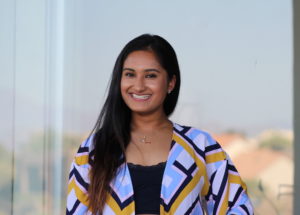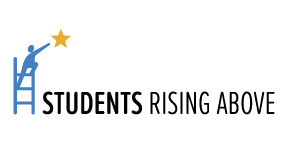Women’s Empowerment Month: Owning and Recognizing The Importance of Your Own Voice – Don’t Follow The Recipe, Follow Your Gut
 In honor and celebration of Women’s Empowerment Month, we’re spotlighting BIPOC women in leadership, who are taking action for equality and paving the way for our future leaders.
In honor and celebration of Women’s Empowerment Month, we’re spotlighting BIPOC women in leadership, who are taking action for equality and paving the way for our future leaders.
This week, we had the great joy to [virtually] sit down with Nikita Gupta, Co-Founder & CTO at Symba, and 2020 Forbes 30 Under 30. Nikita shares how her passion for food and tech have shaped her career, her experience as a POC woman in Computer Science and Engineering, and her greatest hope for women of the next generation.
Read the full story below:
Please share a little about yourself. Where are you from? How did education shape your life?
My parents are from India and growing up South Asian has been a huge part of my life. I was born and raised in New Jersey, USA and have lived in multiple cities around the world.
I used to cook a lot and my father encouraged me to develop a website to showcase my passion with friends and family around the world. After I built my first website (www.nikitaskitchen.com), I found a passion for computer science and being able to mix technology with my hobbies and interests. I’ve also been inspired by my father, who is an entrepreneur, to pursue a career in tech. I attended Cornell University in upstate New York and studied Computer Science and engineering. Education has always been really important in my family.
How did you find and navigate your career path in tech, as well as an entrepreneur?
While I was studying Computer Science, I realized that software engineering is pretty much everywhere. If I loved cooking then I could work in food-tech or open up a restaurant operated by robots. In finance, there were many emerging applications and really cool tech jobs in healthcare, as well. Computer Science was definitely a hard degree to obtain, but the fact that I could work in many industries or start my own tech venture is what kept me excited and hungry to learn. When I met Ahva (my co-founder and Symba’s CEO), I was immediately hooked onto the idea to use my technical skills to make an impact in the remote work world.
Please share your experiences as a BIPOC woman in leadership at a leading tech start-up?
It’s been an incredible journey as a POC woman leader. I’m grateful to have a female co-founder and work with a female-founded core Symba team! I’ve met so many inspiring women throughout my early career and am continuously amazed at the creativity, leadership skills, professionalism, and diversity that women bring to the table. I will admit that it’s been a challenge, especially as a woman in tech. Some people still have a hard time believing that I first coded Symba and lead an engineering team.
Please share a little bit about your passion for systems change. For example, Symba’s mission to fix broken structures in internships.
For me, internships helped me decide what I wanted out of my career. It was the best way to get a taste of professional experiences in the industry. When I learned that students like me were unable to get the same opportunities, I wanted to change that. At Symba, we are a team of passionate social entrepreneurs and on a mission to #OpenUpTheWorkforce. Today, Symba is powering thousands of workforce development programs, including internships, bootcamps, apprenticeships and more to open up more opportunities for more people around the world.
How have you navigated a gender-related challenge in your career?
Yes, definitely! I have been in multiple situations where I have worked with a male-dominated team. In the end it really comes down to being confident in your work, voicing your opinions, and not being afraid to be discouraged by anyone else.
Who are women in leadership you look up to?
This is tough because there are so few women in CTO roles, especially in the top 500 companies in the world! I have amazing parents who have been supportive of my entrepreneurial journey, as well as multiple communities such as Neythri, that have introduced me to incredible South Asian women leaders.
Please share your experiences as a volunteer with SRA? Which events / programs have you participated in? What was your biggest takeaway?
Paula Galvaz Anzano was the first person we met at SRA! After meeting her, both my cofounder Ahva and I were in awe of SRA’s incredible mission. Being first-generation Americans as well, we were excited to be a part of the community. I volunteered at the Gala back in 2019 with Ahva and we met many inspiring students who had big ideas and dreams! I’ve also been a mentor and board mentor for SRA CODEversity program to introduce the fundamentals of Computer Science and help promote diversity in tech. My biggest takeaway is the feeling of being part of an organization that is dedicated to impacting the future of the youth and helping them break through barriers into the workforce.
What does SRA mean to you in terms of closing equity gaps?
Giving the youth their first opportunity, whether that’s helping them land their first internship or helping them graduate from college is one step closer to closing equity gaps. SRA’s mission to help low-income and first-generation youth is helping accelerate closing equity gaps and opening doors for all students in the professional workforce. SRA’s success definitely reveals the impact of raising confidence in the students and helping them attain many opportunities.
What does leadership mean to you?
Leadership is the ability to guide a team and to motivate the individuals in the team to reach the destination. Leadership means a few different things to me. A good leader helps bring their team up and helps them rise further. Great leaders know how to support others to make them more productive and successful in their role. Leadership also means allowing others to do what they are really good at, and understanding that as a leader, you’re not always going to be right. It also means trust and respect with those that you work with.
What is your greatest hope for women of the future / next generation?
I hope that the women reading this don’t feel restricted to dream big and have the confidence to do whatever they want without anyone telling them “No”. I hope they realize that in order to bypass all of the political and social stigma, we must lift each other up and continue to be cheerleaders for our fellow women leaders. We must set an example for the next generation and make them aware of the struggles of minority women and that the movement is stronger when we are inclusive. My hope for the next generation is to own and recognize the importance of your own voice and power.
Any advice for future leaders?
Don’t follow the recipe, follow your gut.
